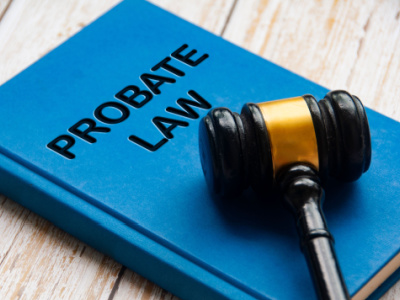How Are High-Value Assets Addressed During the Probate Process?

When someone passes away, their estate goes through probate to ensure that their assets are distributed according to their wishes, their debts are paid off, all required taxes are paid, and other issues related to their estate are handled correctly. The probate process can be complex and time-consuming, especially when high-value assets are involved. Assets such as real estate, investments, businesses, and valuable personal property may require special attention during this process. To ensure that all legal and financial concerns are addressed correctly during the probate process, it is important to work with an attorney who has experience in cases involving large and complex estates.
Valuation of High-Value Assets
One of the first steps involved when addressing high-value assets during probate is determining their value. An accurate valuation is crucial for distributing the assets fairly among beneficiaries, calculating any applicable estate taxes, and addressing other financial concerns. The executor or personal representative of the estate may need to hire professionals such as appraisers or accountants to assess the value of different types of assets.
In Illinois, it is important to note that estate taxes may apply for large estates. State and federal estate taxes will apply to the value of an estate that exceeds the applicable exclusion or exemption amounts. In 2023, the federal estate tax exemption is $12,920,000, and federal taxes will only apply to assets in excess of this amount. However, the Illinois estate tax exclusion amount is $4,000,000, and state estate taxes will apply if the total value of an estate’s assets exceeds this amount.
Paying Off Debts with High-Value Assets
During probate, outstanding debts of the deceased must be settled before any remaining assets can be distributed among beneficiaries. If there are not enough liquid funds available in the estate to cover these debts, high-value assets may need to be sold or used as collateral for loans.
If a decedent had significant debt but also owned valuable property like real estate or expensive artwork, selling those items might become necessary to satisfy creditors’ claims. An experienced attorney can provide guidance on how different types of assets may be handled when addressing an estate’s debts and whether certain assets may be exempt from liquidation.
Transferring High-Value Assets to Beneficiaries
Once all debts and taxes have been paid, the remaining assets can be distributed among the beneficiaries according to the decedent’s will. The transfer of these assets may involve various legal processes depending on their nature:
- Real estate: While real estate property may be transferred to beneficiaries through the probate process, a person may have set up other arrangements, such as a transfer-on-death deed or joint ownership. An attorney can help executors and beneficiaries understand what procedures will be followed when transferring ownership of real estate.
- Businesses: If the deceased owned a business, its value and ownership structure must be assessed. Depending on how it was structured, different steps may need to be taken to ensure a smooth transition of ownership or sale. A business succession plan that had been put in place may be followed to ensure that beneficiaries or other parties can assume ownership and operation of the business.
- Investments: Stocks, bonds, mutual funds, and other investment accounts are typically transferred directly to beneficiaries if they were held in individual accounts. Accounts with beneficiary designations may be able to pass directly to the named beneficiaries without going through probate.
- Jewelry and artwork: Valuable personal property may be specifically mentioned in a will or distributed based on general instructions for personal property. Appraisals may be necessary to determine their fair market value before distribution.
- Trusts: Assets held in trusts will typically be distributed directly to beneficiaries without going through probate. However, testamentary trusts or certain other types of trusts may need to be addressed during the probate process.
Contact Our DuPage County Probate Lawyer
The probate process can become overwhelming when dealing with high-value assets. It is crucial to work with an experienced Naperville probate and estate administration attorney who understands the applicable Illinois law and knows what issues need to be addressed when handling complex estates. At the Gierach Law Firm, our attorney can guide you through the probate process, ensure compliance with legal requirements, and help protect your interests. To learn more about how we can assist with probate and estate planning matters, contact us at 630-756-1160 and schedule a consultation.
Practice Areas
Archive
+2016
+2013
Please note: These blogs have been created over a period of time and laws and information can change. For the most current information on a topic you are interested in please seek proper legal counsel.














